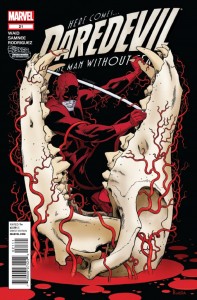 A long time ago (sometime around 1986) in a galaxy far, far away (presuming you are reading this from somewhere in Andromeda, and if you are: please send flying cars and jetpacks), Marvel Comics decided, four years after Return of The Jedi had left theaters and with enthusiasm for Star Wars dwindling after years of no word of a fourth movie forthcoming, to stop publishing Star Wars comic books.
A long time ago (sometime around 1986) in a galaxy far, far away (presuming you are reading this from somewhere in Andromeda, and if you are: please send flying cars and jetpacks), Marvel Comics decided, four years after Return of The Jedi had left theaters and with enthusiasm for Star Wars dwindling after years of no word of a fourth movie forthcoming, to stop publishing Star Wars comic books.
A less long time ago (figure around 1991), writer Timothy Zahn published a Star Wars novel named Heir to The Empire, which rumor had it was authorized by George Lucas and reflective of the plots originally planned for the Star Wars Episode VII movie promised to us back around 1980. The book and its sequels were a hit, and revitalized interest in Star Wars for the first time in years. And by the end of that year, we walked into comic stores to find Dark Empire, the first new Star Wars comic book in about five years, written by Tom Veitch and drawn by Cam Kennedy, expanding on Zahn’s work and published by Dark Horse Comics. This began a run of Dark Horse-published Star Wars comics that have spanned two decades, three new Star Wars movies, and, depending on your point of view and impulse control, four to six George Lucas childhood rapes (depending on if you count the non-Genndy Tartakovsky Clone Wars cartoons.
A couple weeks ago, in Los Angeles, Disney bought Lucasfilm. And you might remember that three years ago, Disney bought Marvel Comics. And yet, to this day, Dark Horse publishes several Star Wars comic books (including reprints of many of the old Marvel issues). But hey, that’s okay! What could possibly happen? I mean, look at Star Wars itself! When Senator Palpatine took over the Senate, everything stayed a-ok and the status quo was maintained, right?
Right?

 Podcast RSS Feed
Podcast RSS Feed iTunes
iTunes Google Play
Google Play Stitcher
Stitcher TuneIn Radio
TuneIn Radio Android
Android Miro Media Player
Miro Media Player Comics Podcast Network
Comics Podcast Network